Palatial Wayland Brewing nears open in Orchard Park
Destination spot features event space, lager-fueled brewery, restaurant, outdoor area, bocce courts from hospitality super team
PJ Dunn remembers the exact moment he was ready to give up on his dream of opening a brewery. A longtime homebrewer, Dunn worked for three years at Buffalo’s well-regarded Thin Man Brewery in a few different roles.
But as he entered his late 30s and with two young children, he thought the time was right to move on. But just a week after talking with his wife and telling her he was ready for the next chapter, he received an unexpected direct message that changed everything.
Chef/restaurateur Brad Rowell reached out. Rowell asked if Dunn, now 38 and a Pittsford Sutherland High School graduate, could meet up to discuss a new project. Fast forward four years later and the palatial Wayland Brewing Co. nears opening inside one of Orchard Park’s most historic structures at 3740 N. Buffalo St.
It has been completely re-imagined and re-invigorated as two buildings have been constructed, bringing the total footprint to 18,000 square feet across four buildings. That includes a shining 20-barrel production brewery with an in-house canning line and all of the bells and whistles needed produce traditional lagers (decoction!!) and a huge assortment of other styles.
Even in his wildest dreams, Dunn, who lives in East Aurora, Erie County, said he couldn’t have envisioned things working out as perfectly as they have. And as the business prepares for an early spring opening, Wayland Brewing has as much potential as any spot to open in this region in the last 10 years (and that’s not a statement that I make lightly).
“I am extremely excited,” Dunn said. “But as soon as I knew it was gonna happen, my mindset shifted and it was almost a panic. I told myself I needed to get all these recipes dialed and I had to learn all this stuff. We got through that.
“I sold the business I owned. We’ve made a lot of sacrifices. My wife has really made some sacrifices. I’ve poured everything I’ve got into this. I’m really proud of what this whole team has done.”
Dunn’s journey
Like so many who decide to go pro, Dunn’s long and winding path in beer began as a much lauded homebrewer. (One brewery owner in Buffalo told me Dunn was among the two best homebrewers in the Buffalo region.) He picked up the hobby in 2008. When Dunn latches onto a new passion, he’s the kind of nerd who jumps all the way in. (He joked that thankfully his wife fully accepts that. As a fellow nerd, I’m lucky to have the most supportive partner, too.) Beer, pizza, and coffee are the three areas in particular that he’s embraced.
So it’s easy to say Dunn is a fermentation nerd. Five years or so into homebrewing, Dunn said he started to seriously consider turning his hobby into a career. Dunn worked for Xerox and a small software company in his previous stage. He also owned a small business with this father. That involved a lot of travel, something he didn’t want to do forever with a growing family.
He joined Thin Man Brewery in 2016, which has become one of the best breweries in this region, where he performed a lot of cellar work. As he put it, “I wasn’t a brewer. I wasn’t a creative force there. I was learning how to operate all the stuff and scale. I spent a lot of time with Rudy (Watkins, former Thin Man head brewer) and (brewer) Ryan Zacarchuk and learned so much from them.”
Dunn stepped away three years later after the birth of his second child and thought that was gonna be it for him. He even gave up homebrewing, stopping for a year after leaving Thin Man. And that’s when Rowell sent Dunn that fateful message.
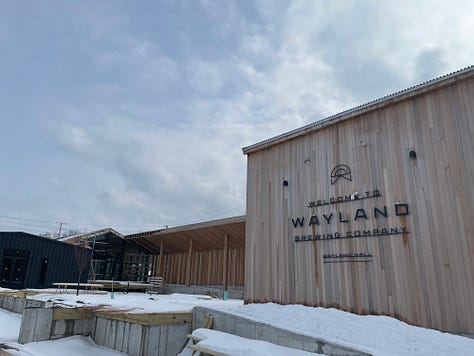
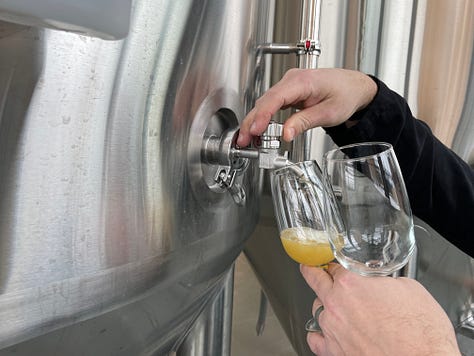
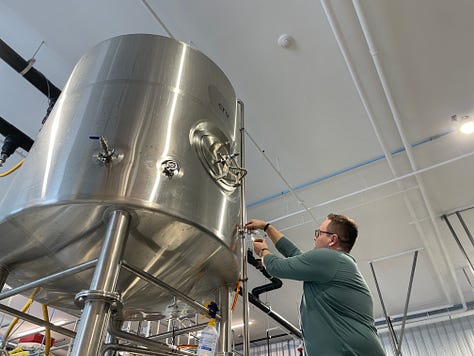
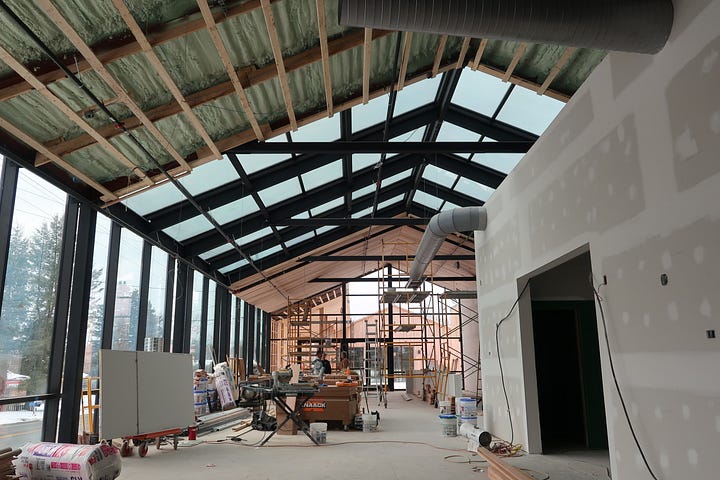
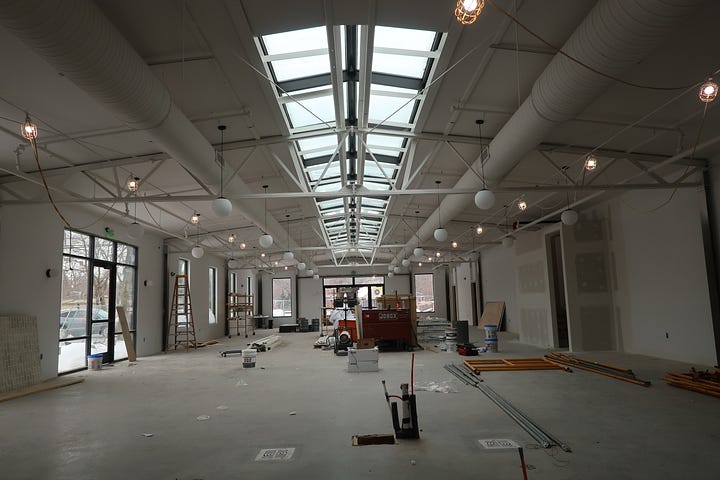
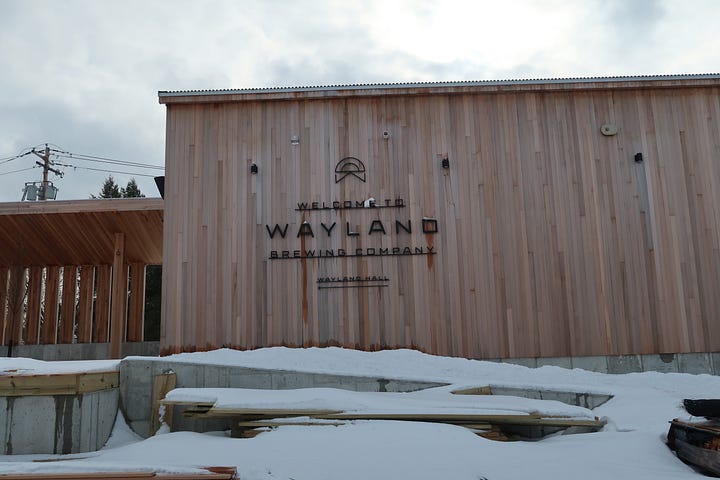
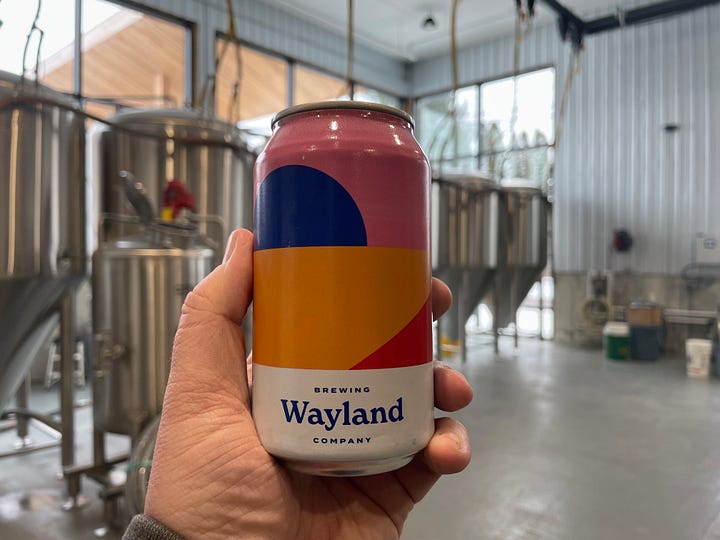
The partnership
Rowell, a renowned and respected chef and restaurateur in the Buffalo region, co-owns the Grange Community Kitchen in Hamburg, West Rose in Ellicottville, and the Grange Outpost bakery just up the road in Orchard Park. Caryn Dujanovich is Rowell’s partner in all four businesses. Dujanovich is extremely smart and detail-oriented, Dunn said. And because this is how connections are made nowadays, Dunn noted Rowell didn’t have his phone number, so they connected through an Instagram direct message.
“The first droplet of what became this started as an Instagram message, where Brad said, ‘Hey, do you ever still think about opening a brewery?’” Dunn quipped. “Just the week before I had told my wife that I was done. We had talked about opening a brewery for years. We didn’t have the resources to do that. I was going to get an office job and I’d be perfectly fine with that. Literally, a week later, Brad reached out to me.”
Rowell’s reputation and vision added significant heft to the idea, Dunn said. Just when he thought he was ready to move onto the next chapter, life had other plans. It’s always goofy to see how things work out.
“I had really made peace with it (the decision to move on),” Dunn said. At that point, Dunn ramped up the homebrewing again. “It was different, because before I was just brewing if I wanted an IPA on tap at home,” Dunn said. “I started educating myself more and more on lagers.”
He joked that his mother-in-law is his biggest beer fan and told him how disappointed she was as he moved toward brewing more and different styles. Dunn is looking forward to not disappointing her any longer.
And while working on the business plan and location scouting for Wayland, Dunn completed the concise brewing course at the famed Siebel Institute brewing college in Chicago. And here’s where the nerd comes out again, Dunn said he worked closely with the brewing equipment manufacturer, Cru, which is based in British Columbia.
The space
Dujanovich is the creative visionary and designer for much of the facility, Dunn said. They also worked with a local architect. It’s housed at the former American Legion Post 567. When the partners bought the property, it only included the historic house at the corner of North Buffalo Street and Webster Road. (The Legion added the connected event hall in 1975.) The site was originally the homestead for Erastus Webster, an early settler in Orchard Park who served under Secretary of State William Seward during President Abraham Lincoln’s administration.
Dunn said the partners shared a common vision for the goal of the space — a community gathering spot where people could celebrate all sorts of life’s milestones and also enjoy a great beer and great meal together. But they lacked the proper space.
It took a year to find the right fit. The team considered a spot in Hamburg, but Dunn was always drawn to Orchard Park. “Without doing any market research, which I ultimately did here, there’s not much here,” he said. “There are some nice local establishments. A town of this size, with the demographics here, can support a lot more than what’s actually here.”
After some meetings with the local chamber of commerce, Dunn was introduced to the former American Legion property. Wayland added roughly 10,000 square feet to the property and ground was broken roughly 17 months ago. The brewery is the only building that isn’t connected to the others. But it’s accessible via a cedar-lined breezeway that runs alongside the outdoor space. The outdoor space will include bocce courts, as well as three fire pits. The event hall will have access to a patio at the front of the complex.
The space features lots of natural light, particularly in the newly added atrium section between the brewery and the original house. There are three bars, including one in the event space. That area is designed to host up to 220 guests for weddings and other special events. (Dunn joked that, “It’s Buffalo and if someone is getting married here and they want six lines of Blue Light (on draft), you don’t have to drink my beer. You want Blue Light? It’s your day.”) The atrium will welcome patrons into brewpub area. All of the spaces will be serviced through a massive, centrally located kitchen.
The identity
After considering a smattering of different names, Dunn said landing on the Wayland moniker was a “collective effort.” Some of the first beers that’ll be released after opening are actually potential brewery names that didn’t fit (like a witbier called Larkspur).
Wayland is not named after the town in Steuben County. The idea was generated from evoking something that feels like a getaway.
“We wanted to embody that,” Dunn said. “And obviously the name isn’t literal, but we felt like it evoked that.” And it was derived “pretty organically,” Dunn said.
“My one test was, can I hear myself saying to a buddy, like, ‘Hey, do you want to go get a beer at Wayland?’” Dunn shared.
The beers
The 20-barrel brewhouse is particularly impressive. As far as I know, it’s one of the first in this region to be equipped with an extra decoction vessel as the mash is split into two parts during a long, long process.
(It’s a process that lager traditionalists say is necessary to produce the most authentic wort. Some argue most can’t taste the difference between a decocted lager and one that hasn’t been decocted. But purists believe in following those old-world traditions to make their beers.) And while this might not mean anything to most beer nerds, it shows how serious Dunn and Wayland are about their lager program. (There’s another decoction system coming to Monroe County, but we’ll save that for a future newsletter.)
Dunn notes not all lagers will be decocted at Wayland. (And this is where our interview got extra, extra nerdy.) Wayland beers will only be packaged in 12-ounce cans, Dunn said.
And if the test batches are an indication of what’s to come, western New York better get excited quickly. I sampled a German Pilsner, a house lager (which drank like a cross between a Pilsner and a Helles), a robust porter, a Munich-style dunkel lager, and a witbier. All were exceptional, nuanced, and true to style. If Wayland is already making beers this good, it’s pretty wild to think where it might end up. (And spoiler: I’m working to get Wayland to pour at the Rochester Real Beer Expo in June as a way to introduce it to this market.)
Balance and tradition will certainly be the hallmarks of Wayland beers. On the hoppy side, Dunn said he likes his India pale ales to have a more pronounced bitterness and a drier finish. He is a big proponent of pushing the aroma as much as possible. But expect the majority of IPAs to still be hazy.
“I want to make the best possible beers we can,” Dunn said. “I’m sure everyone is saying that, but we’re not shorting or going cheap on raw ingredients. If it’s called for to make the beer better, we’ll use it. This is all so new and we’ve still got a lot of processes to work out and document and refine.”
A note on sponsors
Do you own a business? Do you want to support this coverage and keep it free for readers? I can help spread the word about your business. And with your help, my work will remain free and accessible to all. Generous sponsors have supported me for the past eight months and readers have benefited. I would love to continue this.
I remain open to sponsorships, sponsored content, and advertisements, especially if it’ll keep the newsletter free for readers. And if you have information about upcoming releases, events, or happenings, don’t hesitate to reach out. For more information, feel free to drop me a line at clevelandprost@gmail.com.
And if you enjoyed this edition of the Cleveland Prost, please subscribe and share! See you again soon.


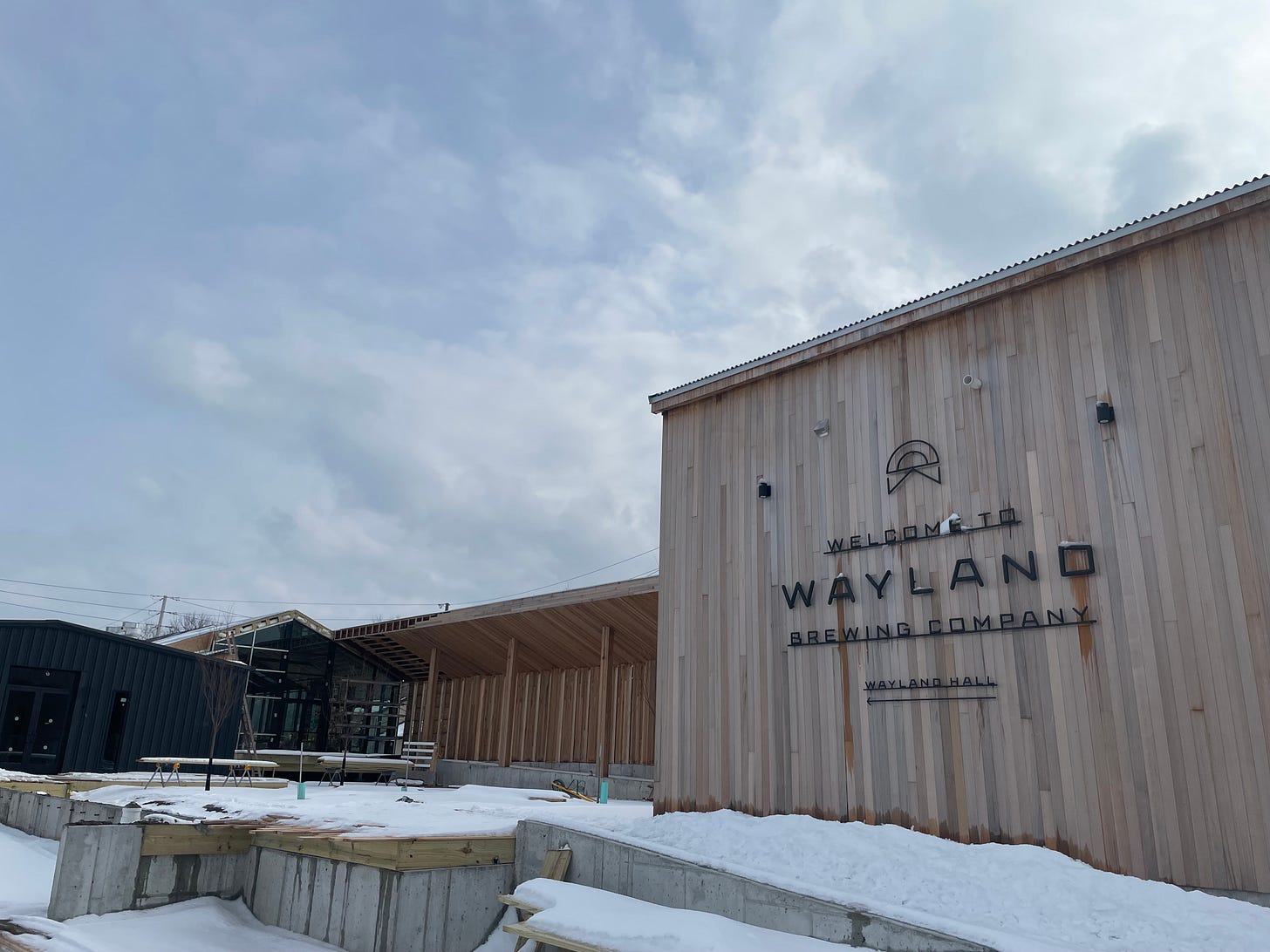
Cool story 💜